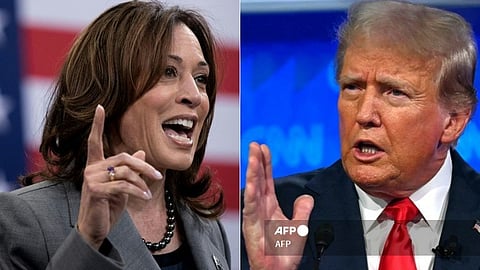
- NEWS
- the EDIT
- COMMENTARY
- BUSINESS
- LIFE
- SHOW
- ACTION
- GLOBAL GOALS
- SNAPS
- DYARYO TIRADA
- MORE

A “deepfake” video parodying Kamala Harris, a manipulated expletive-laden clip of Joe Biden, and a doctored image of Donald Trump being arrested — a tide of AI-fueled political disinformation has prompted alarm over its potential to manipulate voters as the US presidential race heats up.
In what is widely billed as America’s first AI election in November, researchers warn that tech-enabled fakery could be used to steer voters toward or away from candidates — or even to avoid the polls altogether — stoking tensions in an already hyperpolarized environment.
A recent wave of disinformation has renewed calls for tech giants — many of which have retreated from moderating social media content — to strengthen guardrails around generative artificial intelligence ahead of the vote.
Last week, Elon Musk faced intense criticism for sharing a deepfake video featuring Vice President Harris, the presumptive Democratic nominee, with his 192 million followers on X, formerly Twitter.
In it, a voiceover mimicking Harris calls President Joe Biden senile — the voice then declares that she does not “know the first thing about running the country.”
The video carried no indication that it was a parody — save for a laughing emoji. Only later did Musk clarify that the video was meant as satire.
Researchers expressed concern that viewers could have falsely concluded that Harris was sullying Biden and deriding herself.
AFP’s fact-checkers have debunked other AI fakery that raised alarms.
